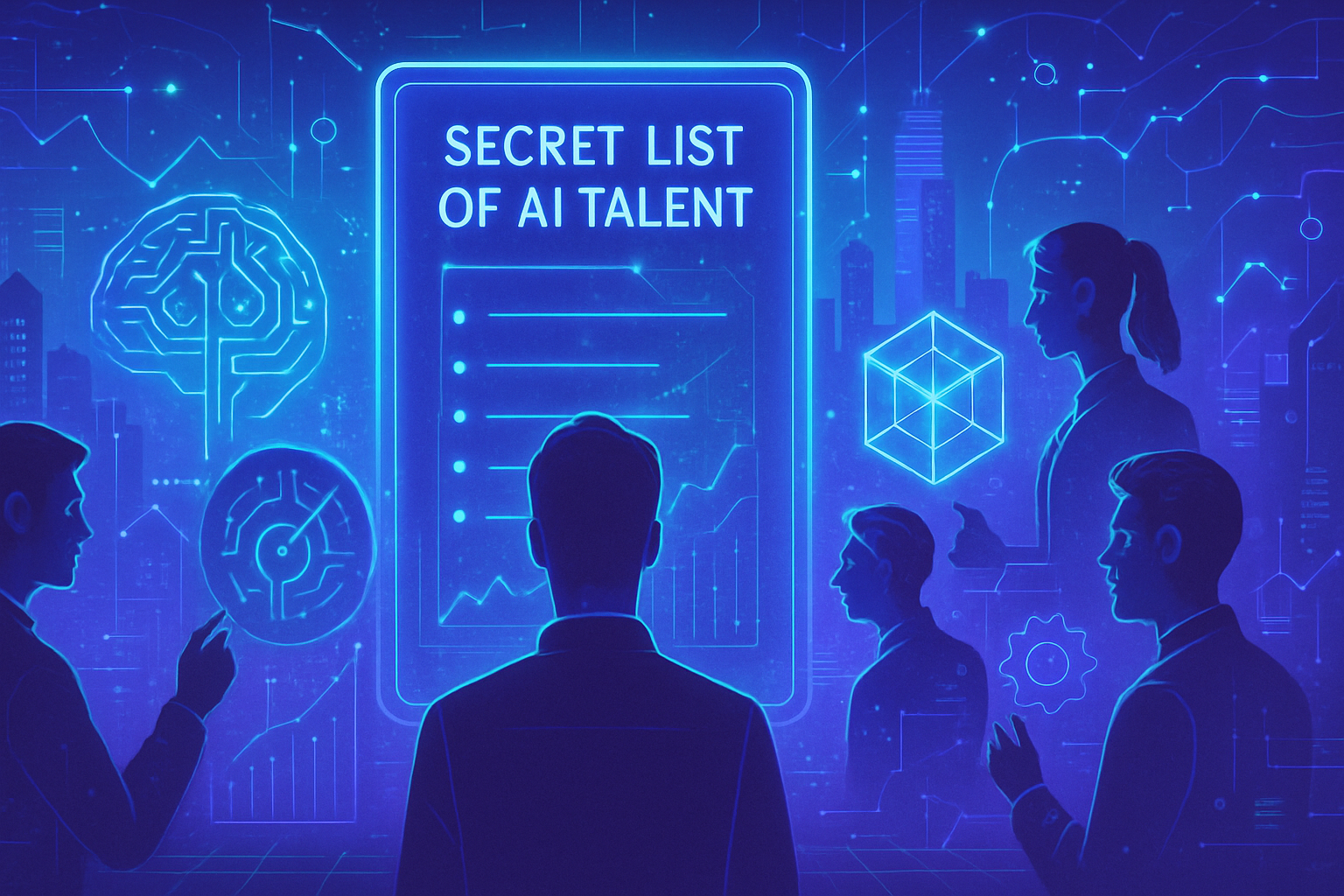The tech world is electrified by Mark Zuckerberg’s relentless quest for brilliant minds in artificial intelligence. An obsessive concern arises: attracting top talent with unprecedented financial offers reaching up to 100 million dollars. AI giants like Google and OpenAI tremble under the pressure of this bold strategy, redefining competitive standards in the industry.
Mark Zuckerberg’s Recruitment Ambitions
Mark Zuckerberg, the CEO of Meta, stands out with a bold strategy aimed at attracting the best experts in artificial intelligence. Persistent rumors suggest a carefully curated list, cataloging recognized talents in the international AI sector. This large-scale project is set against a backdrop of sharpened competition with giants like OpenAI, Google, and Microsoft, who are heavily investing in research and development.
Astonishing Salaries
The recruitment offers made by Meta could reach staggering amounts, exceeding 100 million dollars per candidate. The Wall Street Journal reports that Zuckerberg has made personal efforts to approach exceptional researchers. This quest for excitement in the AI field is disrupting the tech landscape, causing mixed reactions within the community.
Meta’s Targets
Among Zuckerberg’s targets are graduates from the most prestigious universities, notably the University of California, Berkeley and Carnegie Mellon. Many of these young talents currently hold key positions at direct competitors of Meta. A former recruit who spoke with Zuckerberg claimed that his vision relies on a “transfusion” from the country’s most prominent AI labs.
A Unique Recruitment Dynamic
Meta has established specific communication channels to facilitate these recruitments. A discussion group on WhatsApp, named “Recruiting Party,” brings together Zuckerberg and several company executives, allowing them to exchange ideas about promising prospects. Zuckerberg’s analysis of scientific publications reflects a proactive approach to identifying the best candidates.
Repercussions on Company Culture
The spectacular financial offers issued by Meta have raised concerns within the industry. Sam Altman, the CEO of OpenAI, has expressed his disagreement with this recruitment method. He described these bonuses and compensation packages as “extravagant,” pointing out that this approach could be counterproductive for company culture. Altman rejoiced that, so far, none of OpenAI’s key talents have succumbed to Meta’s lures.
The Impact on AI Development
Meta is engaged in this battle for AI dominance, as companies like Google ramp up their efforts. The recent acquisition of Scale AI for 14 billion dollars illustrates Zuckerberg’s growing ambition to create AI systems superior to human intelligence. The founder of Scale AI, Alexandr Wang, is now tasked with leading a dedicated team to face this colossal challenge, dubbed the “superintelligence team.”
A Transforming Tech Landscape
This offensive from Meta is part of a broader context of rising tensions between the United States and China in the field of technology assets and AI. The exponential advancements in semiconductors and quantum computing could redefine future power dynamics. The link between AI talent, research, and strategic positioning is undeniable.
An Unprecedented Competition
The war for artificial intelligence talent has now become a central issue for tech giants. The excitement surrounding AI is pushing companies to adopt unprecedented recruitment strategies. In this fierce struggle, the future of AI could very well depend on the outcome of these battles for brains.
Reflections on Trust in AI
Ethical debates about AI are intensifying, particularly regarding the reliability of systems. Collective vigilance is necessary as content detectors generated by artificial intelligence raise questions about trust and transparency. The need for a thoughtful approach in the development of these technologies is becoming paramount.
Global tensions and Huawei’s positions, as expressed by Ren Zhengfei, highlight the vast scope of issues related to AI. Concerns about the application of increasingly sophisticated AI systems combine with the demand for a strong ethics framework in their design and deployment, advocating for international collaboration.
User FAQ on Mark Zuckerberg’s Search for AI Talent
What is Mark Zuckerberg’s secret list of AI talent?
It is a compilation of experts and researchers in artificial intelligence that Mark Zuckerberg has created to recruit key talents for Meta, in order to strengthen its position in the AI field.
Why is Mark Zuckerberg looking to recruit AI talent?
Mark Zuckerberg aims to strengthen Meta’s AI team to compete with major companies like Google, Microsoft, and OpenAI, which have already heavily invested in AI research and development.
What types of profiles are included in Zuckerberg’s secret list?
The list mainly includes recent graduates from PhD programs at top universities, as well as professionals currently employed by competitors of Meta in the field of AI.
What compensations are offered to the talents targeted by Zuckerberg?
Compensations for these talents can reach up to 100 million dollars, including particularly high signing bonuses to attract the best experts in the field.
How does Mark Zuckerberg contact these talents?
Zuckerberg has personally reached out to numerous candidates by analyzing research publications and discussing in WhatsApp groups dedicated to recruitment strategy.
What impact could this competition for AI talent have on the tech industry?
This competition for attracting top talent could lead to increased salaries in the sector, influence ongoing research projects, and rapidly evolve the technological capabilities of the involved companies.
What is the ultimate goal of Meta regarding AI recruitment?
The ultimate goal is to develop a “superintelligence” that surpasses human capabilities, thereby consolidating Meta’s position as a leader in technological innovation in AI.
How are competing companies reacting to Zuckerberg’s recruitment strategy?
Executives from other companies, such as Sam Altman from OpenAI, have expressed concerns about the impact of these compensations on corporate culture and the long-term mission of innovation in AI.






